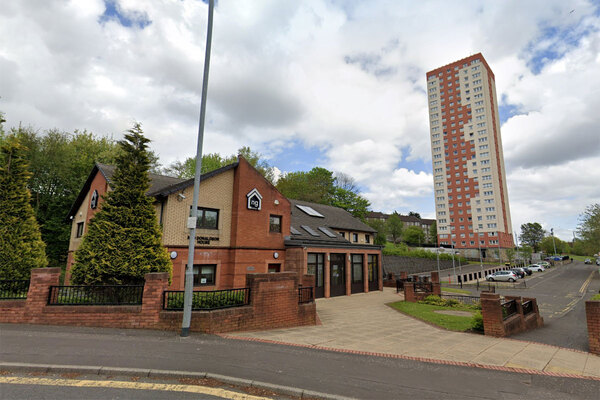You are viewing 1 of your 1 free articles
Regulator investigates 24,000-home landlord over possible governance issues
Two North West housing groups, including one that operates 24,000 homes, are being investigated by the Regulator of Social Housing over possible governance issues.
Salford-based ForHousing, which is part of the ForViva group, has been placed on the regulator’s ‘grading under review’ list.
Cheshire Peaks and Plains Housing Trust, which is also based in the North West, has been added to the list separately.
The regulator said it was currently investigating a matter which may impact on ForHousing Limited’s compliance with the governance element of the governance and financial Viability standard.
It added that the outcome of the investigation will be “confirmed in a regulatory judgement, once completed”. No further information was disclosed.
ForHousing officially became an entity in April this year after a restructure at ForViva. The subsidiary, which was previously known as City West Housing, appointed Henry Terefenko as its chief executive. He moved over from the role of group director of communities at ForViva.
Prior to that Tim Doyle, the now former group chief executive at ForViva, had overseen the association.
Mr Doyle stepped down as chief executive at ForViva in May this year and was replaced by the group’s deputy chief executive Colette McKune.
In the same month, the regulator announced that ForHousing was being given an interim governance rating of G2 as a result of the restructure.
As a subsidiary of ForViva, City West Housing Trust did not have its own regulatory judgement which led to the interim rating.
ForHousing, which operates properties in in Fylde, Knowsley, Oldham and Salford, currently has a V1 rating for viability and G2 for governance. However, the regulator said that the investigation could result in a downgrade to a non-compliant rating for governance.
In a statement, Stephen Reuben, chair of ForHousing’s board said: “We have been informed by the Regulator of Social Housing that they are to carry out a review into our governance rating.
“We will be co-operating fully with the regulator to provide the additional assurance required and will continue to focus on the delivery of services to tenants.”
Separately, the regulator said it also investigating Cheshire Peaks and Plains Housing Trust’s “compliance with the governance element of the regulator’s standards”.
The trust, which manages around 5,000 homes across east Cheshire and the High Peak, appointed an interim chief executive last month as part of an executive shake-up.
Mark Howden stepped up to the role, having previously held the title of director of place and deputy chief executive. He replaced Tim Pinder who the group said had stepped down after “a period away from the business”.
Mr Howden only joined Cheshire Peaks and Plains in May this year having previously spent 11 years at construction giant Balfour Beatty. The trust currently has a G1 governance rating and V1 viability rating.
Responding to the judgement, Mr Howden said: “The regulator has taken the decision to place our governance grading under review following an independent report, which we commissioned, and a self-notification that we made to the regulator.
“Since identifying and reporting these matters we have developed a robust action plan and we will continue to work closely with the regulator as it undertakes its own investigation into our compliance with its Governance and Financial Viability Standard.
"We are now focused on taking on board any lessons that might arise from the regulator’s investigation. Above all, we are committed to upholding the highest standards of governance to safeguard our residents, staff and stakeholders.”
The news of the associations under review came as the regulator separately published judgements on 37 housing associations.
Inquilab Housing Association was the only one to receive a narrative judgment. The west London-based association, which owns 1,300 properties, was downgraded on governance. The association moved from a G1 to a G2, meaning it is still compliant but needs to improve some aspects of its governance arrangements.
The association scored V1 for financial viability, the highest rating a housing association can achieve.
The regulator said it had identified some weaknesses in its health and safety controls prior to the assessment.
As a result the association carried out a review and found there were weaknesses in areas of health and safety reporting, and Inquilab’s overall systems for holding and managing health and safety compliance data required improvement.
It also found that where health and safety issues had been found, the association had not communicated problems to the government in a timely manner and was not transparent about the scale of the problems.
It said that Inquilab was now taking steps to remedy the situation but the board needed to demonstrate that it has embedded improvements in its health and safety control framework and effective board control. Inquilab has been contacted for comment.
Regulatory judgements published on 27 November 2019
| Provider | Governance | Viability | Explanation |
|---|---|---|---|
| Accent Group | G1 | V1 | No change |
| Castles & Coasts Housing Association | G1 | V1 | No change |
| Citizen Housing Group | G1 | V1 | No change |
| Coastline Housing | G1 | V1 | No change |
| Curo Group (Albion) | G1 | V1 | No change |
| Freebridge Community Housing | G1 | V1 | No change |
| Gateway Housing Association | G1 | V1 | No change |
| Golden Lane Housing Ltd | G1 | V1 | No change |
| Habinteg Housing Association | G1 | V1 | No change |
| Hexagon Housing Association | G1 | V1 | No change |
| Incommunities Group | G1 | V1 | No change |
| Inquilab Housing Association | G2 | V1 | Governance downgrade |
| Johnnie Johnson Housing Trust | G1 | V1 | No change |
| Joseph Rowntree Housing Trust (The) | G2 | V2 | No change |
| Look Ahead Care and Support | G1 | V1 | No change |
| Midland Heart | G1 | V1 | No change |
| Moat Homes | G1 | V1 | No change |
| Nehemiah United Churches Housing Association | G2 | V2 | No change |
| Newlon Housing Trust | G1 | V2 | No change |
| Orwell Housing Association | G1 | V1 | No change |
| Paragon Asra Housing | G1 | V1 | No change |
| Phoenix Community Housing Association (Bellingham and Downham) | G1 | V1 | No change |
| Raven Housing Trust | G1 | V1 | No change |
| Saxon Weald | G1 | V1 | No change |
| Silva Homes | G1 | V1 | No change |
| South Lakes Housing | G1 | V1 | No change |
| South Liverpool Homes | G1 | V1 | No change |
| Southway Housing Trust (Manchester) | G1 | V1 | No change |
| Teign Housing | G1 | V1 | No change |
| Thirteen Housing Group | G1 | V1 | No change |
| Thrive Homes | G1 | V1 | No change |
| Trent & Dove Housing | G1 | V1 | No change |
| Unity Housing Association | G1 | V1 | No change |
| Walsall Housing Group | G1 | V1 | No change |
| Watford Community Housing Trust | G1 | V1 | No change |
| Westward Housing Group | G1 | V1 | No change |
| Worthing Homes | G1 | V1 | No change |
Regulatory judgements in England explained
The Regulator of Social Housing publishes regulatory judgements for all providers owning 1,000 or more social housing homes.
These judgements set out whether the provider is complying with the regulator’s governance and financial viability standards.
The regulator carries out an assessment either through a scheduled in-depth assessment, or reactive engagement (in which the regulator acts following information about a provider).
It then awards the provider a rating from one to four for financial viability (V) and a separate rating from one to four for governance (G).
Providers must score two or higher in both categories to be judged as complying with the standards.
As providers have increasingly taken on more risk to cross-subsidise social and affordable housing delivery through market-facing activity, the regulator has changed a number of associations’ viability ratings from V1 to V2.
The regulator often categorises this kind of regulatory action as ‘regrades’ rather than downgrades. Click here to read more.
Key to ratings:
V1/G1: Compliant
V2/G2: Compliant
V3/G3: Non-compliant and intensive regulatory engagement needed
V4/G4: Non-complaint, serious failures, leading to either intensive regulatory engagement or the use of enforcement powers
Rating straplines in full:
Governance ratings:
G1: The provider meets our governance requirements.
G2: The provider meets our governance requirements but needs to improve some aspects of its governance arrangements to support continued compliance.
G3: The provider does not meet our governance requirements. There are issues of serious regulatory concern and in agreement with us the provider is working to improve its position.
G4: The provider does not meet our governance requirements. There are issues of serious regulatory concern and the provider is subject to regulatory intervention or enforcement action.
Financial viability ratings:
V1: The provider meets our viability requirements and has the financial capacity to deal with a wide range of adverse scenarios.
V2: The provider meets our viability requirements. It has the financial capacity to deal with a reasonable range of adverse scenarios but needs to manage material risks to ensure continued compliance.
V3: The provider does not meet our viability requirements. There are issues of serious regulatory concern and, in agreement with us, the provider is working to improve its position.
V4: The provider does not meet our viability requirements. There are issues of serious regulatory concern and the provider is subject to regulatory intervention or enforcement action.
Jargon-busting: some regulatory terms and what they mean
- Co-regulation: this means boards are responsible for deciding how to meet the regulator’s standards – the regulator does not prescribe how to do this
- Gradings under review list: a public list of providers under investigation who are at risk of being judged non-compliant with regulatory standards
- In-depth assessment: a planned inspection, in which the regulator assesses a providers viability, governance and approach to value for money
- Narrative regulatory judgement: a detailed explanation of the reasons behind a regulatory judgement. Narrative judgements are published where a providers’ viability or governance ratings have changed, or where RSH has particular issues or concerns.
- Reactive engagement: refers to the regulator reacting to complaints or allegations about a provider and taking action
- Stability check: an annual assessment of all providers owning 1,000 social homes or more. RSH uses accounts and statistical return data to check for any changes in a providers’ risk profile.
- Strapline regulatory judgement: where a provider is meeting the standards, and its governance or viability ratings have not changed since its previous judgement, the regulator does not publish a full judgement explaining its reasons for the gradings. Instead it just publishes the gradings themselves, in a ‘strapline’.













